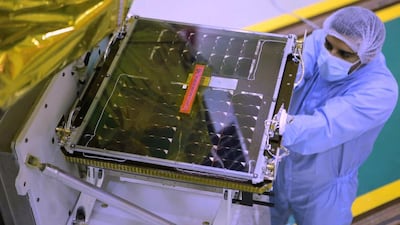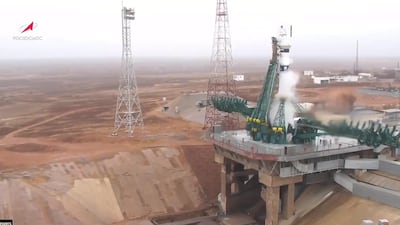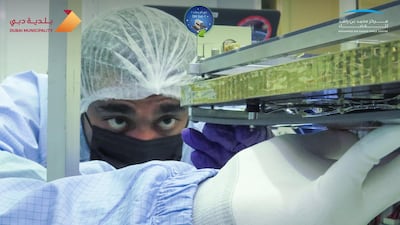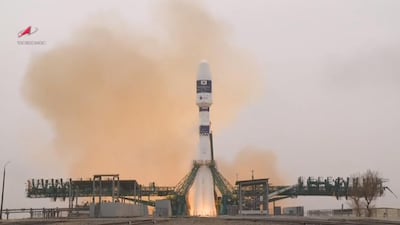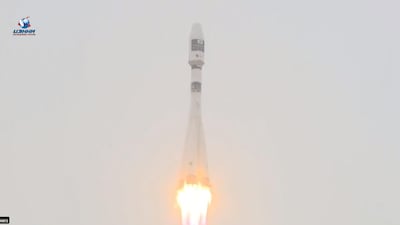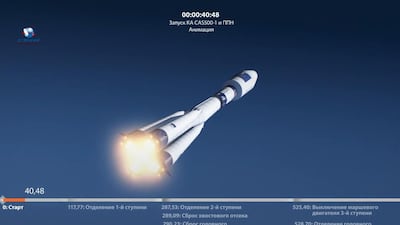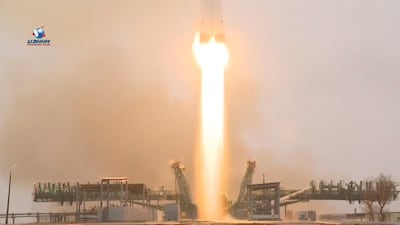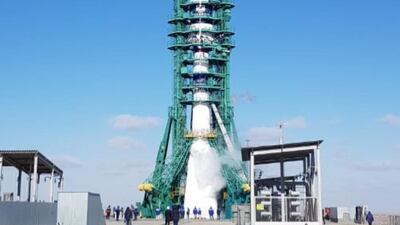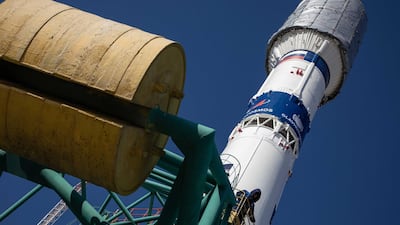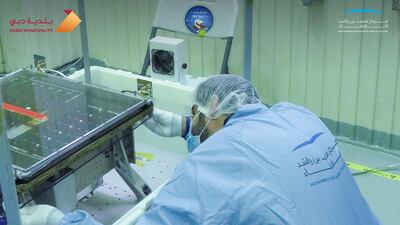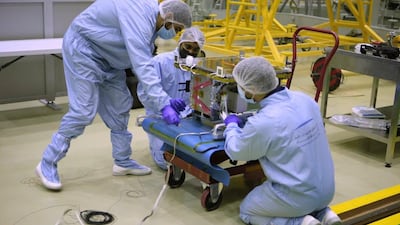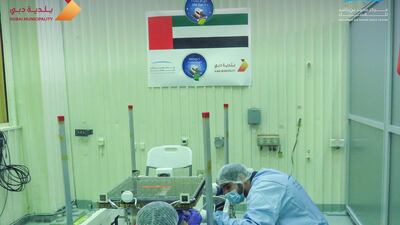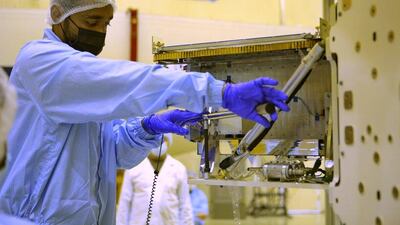DMSat-1, Dubai's new environment satellite, will assess air pollution in the UAE – particularly dust levels – after it launches on Saturday.
The satellite will be carried into space by a Russian Soyuz-2 rocket from Baikonur Cosmodrome in Kazakhstan at 10.07am local time.
The Mohammed bin Rashid Space Centre and Dubai Municipality are overseeing the project.
The 15-kilogram satellite was built by the University of Toronto's Space Flight Laboratory. Its findings will help create a database on pollution that will be sent to the Ministry of Environment and Climate Change.
Sandstorms are common in the UAE and in other parts of the Middle East. Besides sand, they can contain silica crystals, bacteria, dust mites and viruses that can cause respiratory disorders and carry infectious diseases.
Alia Al Harmoudi, director of the environment department at Dubai Municipality, said dust is considered to be an air pollutant.
“The particular matter [dust] has an effect on health,” she said on Tuesday.
“It is one of the main areas we will try to utilise through the satellite to enhance health studies and measure how it is related to health.”
DMSat-1 will also monitor concentrations of greenhouses gases that contribute to climate change, such as carbon dioxide, methane and water vapour.
Ms Al Harmoudi said the findings would be submitted to the Ministry of Environment and Climate Change.
Adnan Al Rais, programme director for DMSat-1 at the Mohammed bin Rashid Space Centre, said the satellite's main scientific instrument is the polarimeter imager, which will capture scientific images of the atmosphere over the UAE, revealing air pollutants. It will work at seven different angles.
Secondary instruments include spectrometers which will help detect greenhouse gases.
“We expect that we'll take the first images in the first few days [after the launch] and that data will be provided to Dubai Municipality and to us for calibration and validation purposes,” he said.
Separation from the rocket is expected to take place four hours after lift-off and the first contact with ground control should take place at 3pm.
DMSat-1 will be placed at an orbit 730 kilometres above the Earth’s surface.
The satellite is one among a cluster of small payloads from 18 countries – including Saudi Arabia and Tunisia – that will be delivered into space on board the rocket.
